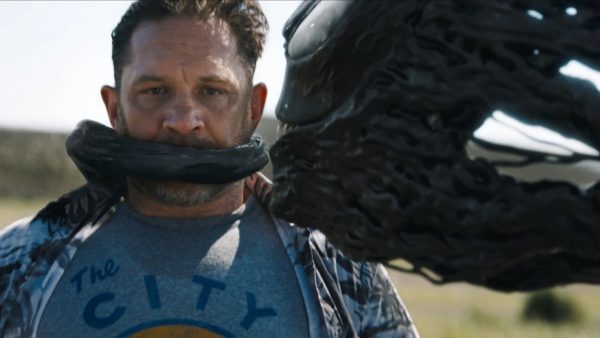Independent artist Duke Smith breaks norms with his rap career
Duke Smith (11) poses for a promotional photo that could be used to spread his image within the music industry. Smith has collaborated with studio producers, record labels and local rappers to increase his experience.
Bottles fly, bodies pack the dancefloor and the beat pulsates as DeCorrio Smith (11), better known as Duke Smith, takes centerstage to rap. He bursts with energy that the audience cannot help but match. Performing before large crowds is nothing new to Smith, who has been balancing his academic and professional rapping career for years on his path toward becoming a prominent rapper.
His journey began with visiting various studios to help grow his confidence and showcase his talents. Smith can rap and sing with a beat or a capella and is constantly working to produce songs, setting him apart from other rappers.
“Relentless. I say [my music career is] relentless because the grind never stops. I’m on it 24/7; I get no rest,” Smith said. “When I hear a beat, the beat talks to me. And the beat puts words into my head because it sounds like each beat itself is a word. It’s weird, but it’s true.”
When it comes down to the content of his singles, Smith finds inspiration from his personal encounters, but he focuses on finding a balance between including exaggerations while maintaining a positive reputation.
“It’s hard to not say too much because you don’t want to just make your image bad,” Smith said. “You gotta be cautious about what you say. Saying the right words — it’s difficult. 75% of [the lyrics are] true; the other 25% is just for a feel. It’s 100% me, but only so much of it is true.”
Rapping has been a reliable source of income for Smith because of his private investors. Although he enjoys earning money for doing something that comes naturally to him, his main motivation for rapping is to empathize with others.
“I enjoy the feel of paper touching my hands, and music is bringing me money. And I just feel like I can live the lifestyle that I want to, so if I make music, I make money,” Smith said. “And I have a lot of fun doing it and reach a lot of people, [but] I do it to send a message, not just for the money … I want it to let the people know they aren’t alone because with anything that’s happened, I’ve been there.”
As of February 2022, Smith creates music as an unsigned artist as he believes there is currently more to gain without being bound to a contract. However, he still feels empowered when record labels demonstrate interest and work with him despite his youth.
“One of the main challenges is my age,” Smith said. “I’m 17 [years old], so I face a lot of problems by not being 18 because it comes down to paperwork, I can’t sign anything. So everything has to go through my parents … otherwise, I’m going full throttle.”
In this field, successful artists must be open to receiving feedback. Smith has learned to accept positive criticism from his manager and friends, but he has also learned to ignore negative criticism, particularly on social media from those who wish they could be in a rapper’s place.
“Criticism — I’ve just started to be okay with people’s opinions — of course, my friends can tell me something, but TikTok showed me that some people will always have something foul to say,” Smith said. “It’s not even honesty all the time; it’s just hate. They see you do something that they’ve done that didn’t get anywhere, so they want to bring you down too. So I accept criticism because most of the time it’s just funny to me because some people who criticize can’t take criticism.”
What means the most to Smith is simply being alive because of his history and the obstacles he has overcome. Encouragement from friends also motivates him to continue rapping and making the most of his experiences.
“Where I’m from, we don’t make it to 18 [years old] all the time, but the biggest support to me is just being happy for whatever I tell you,” Smith said. “You don’t even have to be there all the time … because [Tyrone Brown (11)] works 24/7 and so does [Trayton Holmes (11)], but sometimes he goes ‘forget the job’ and just comes to the shows.”
Achieving Smith’s level of recognition or beyond takes time and talent without any guarantees, so he emphasizes focusing on business or education instead. Despite the buzz around Smith, he does not brag to his competition or treat his friends any differently.
“I don’t really look at him like a rapper; I look at him like a brother, having fun, doing what he’s done,” Brown said. “Upcoming rappers know that he’s got the juice and [Smith doesn’t] try to act heavy with it; he still acts like he’s one of us. Humble.”
Through his intelligence and uncommon skills, Smith appeals to listeners who attend his shows, stream his songs and buy his merchandise when available. At every show, Holmes jumps onstage with Smith to hype up the crowd and helps keep them engaged.
“When it comes down to his music, even if I didn’t have the money for it, I’ll still support him as much as I can ‘cause I know he’s got the talent, and I’ve never seen someone with the talent he’s got,” Holmes said. “I don’t know anyone at this school, anybody personally that can rap and sing … he’s smart too, and he’s got brains.”
Smith’s first released single “Cocky Business” was highly praised for its dynamic style and rhythm, precise line delivery and strong vocal capabilities. But Smith has more to come, and his versatility allows him to produce both energetic tracks and thoughtful melodies in which he is not afraid to express his vulnerability.
“[My song] ‘Kick the Door’ — it’s a bop [and makes people kick and dance],” Smith said. “But I have a song called ‘Pick me Up,’ and it just tells people about my more sensitive side, the side that people don’t really see. They’ll see happiness or hypermasculinity, but they don’t ever see me just being emotional.”
Your donation will support the student journalists of White Station High School. Your contribution will allow us to purchase equipment and cover our annual website hosting costs.






































